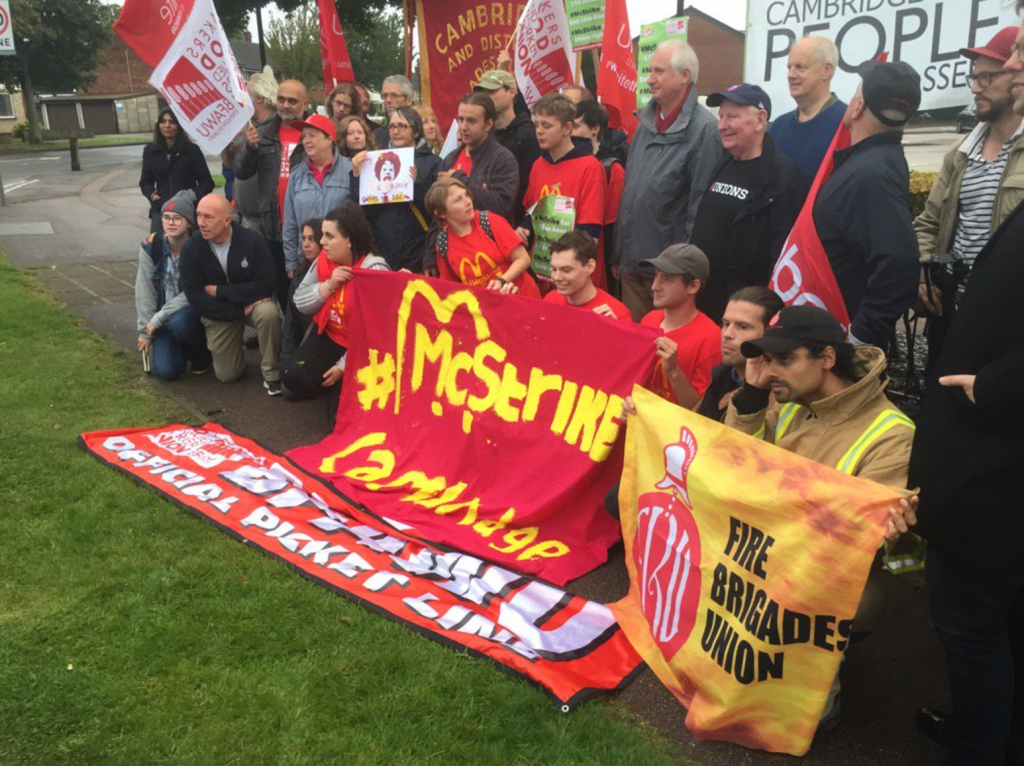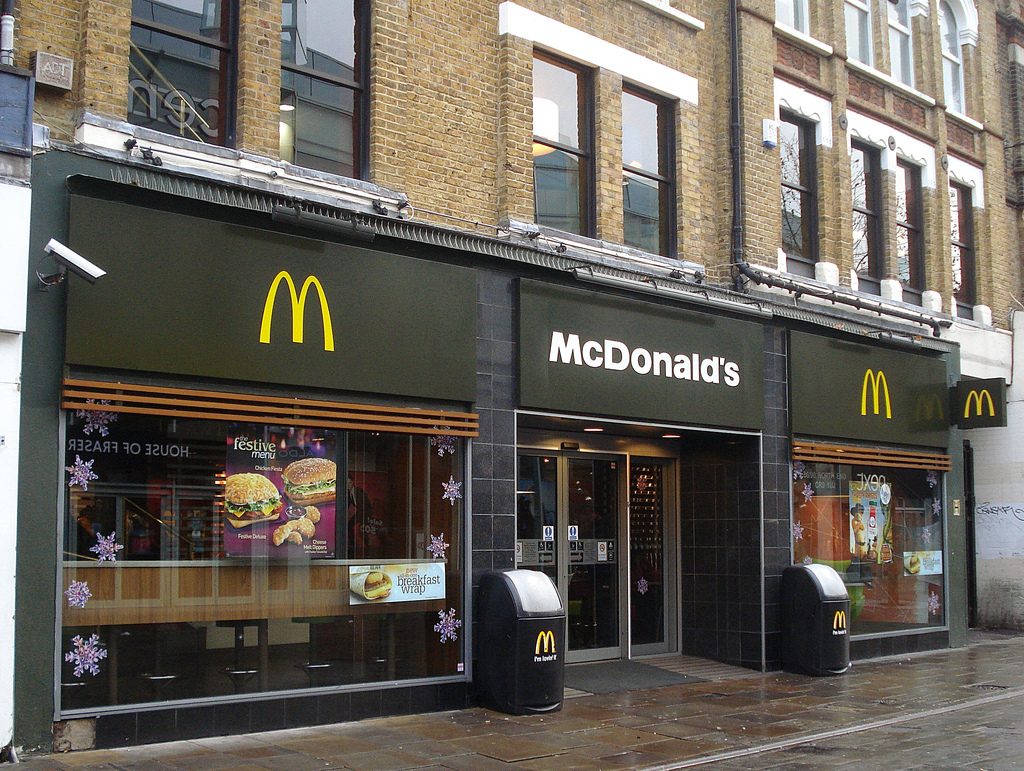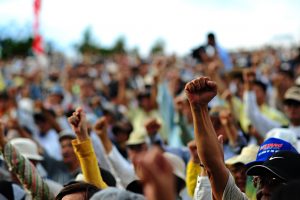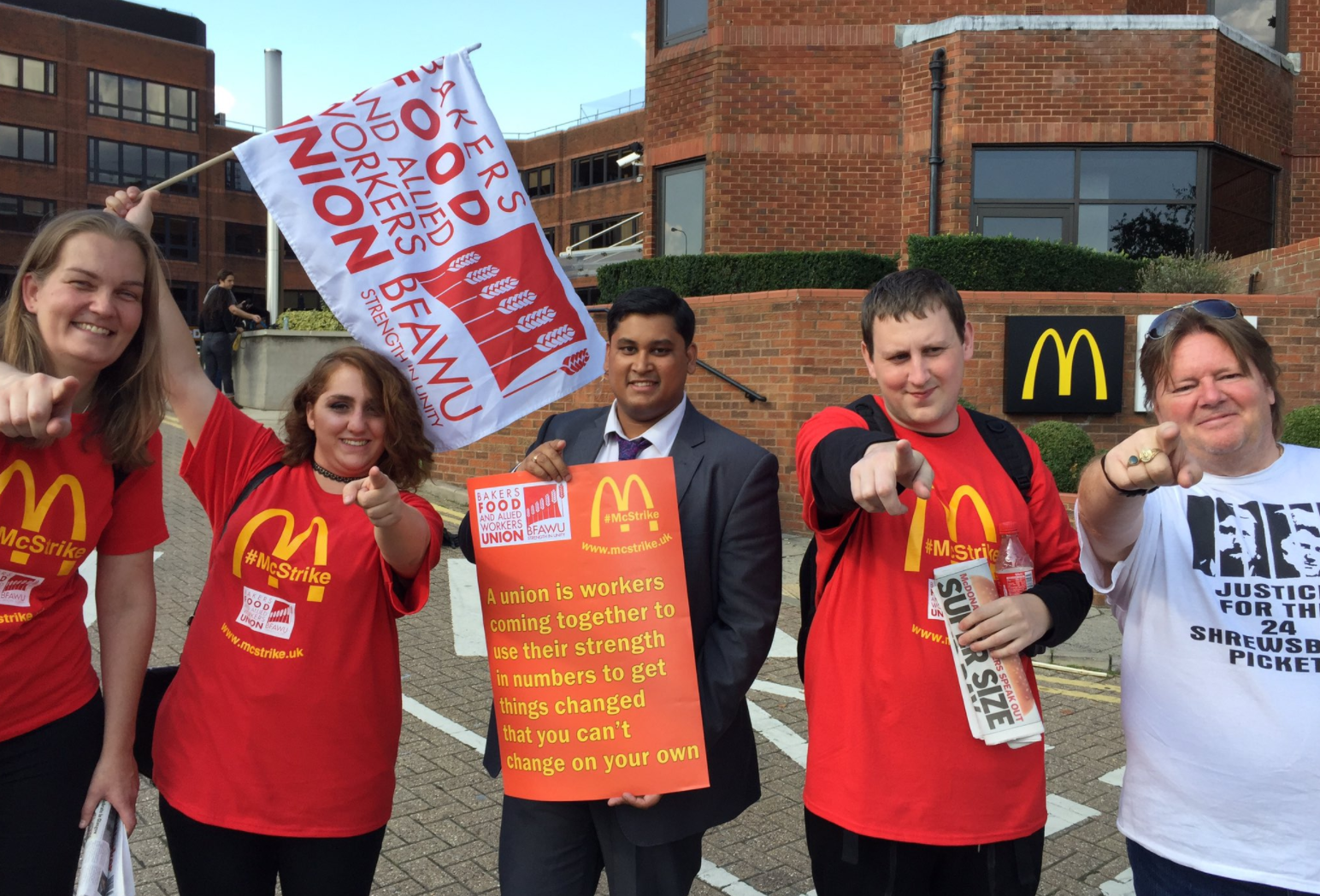Last week McDonald’s staff from branches in Cambridge and Crayford, South East London, went on strike.
It’s the first time staff from McDonald’s have ever gone on strike in UK history, so made a lot of front pages. But what does any of this have to do with human rights, and can human rights offer a solution?
So what was the strike about?

Image Credit: Ian Hodson / Twitter
There were three main issues:
- A £10 minimum wage: At the moment McDonald’s minimum wage is £7.60 per hour if you are aged 25 or over. If you are younger (which most McDonald’s workers are; in 2013 the average age was 20) you are paid less. £7.60 per hour is below the ‘living wage’ (the hourly wage that is considered to be enough to live on), which is £8.45 nationally and £9.75 in London.
- Zero hours contracts: McDonald’s workers have alleged that the flexibility of zero-hours contracts is being abused to punish people for joining trade unions. Ian Hodson, National President of the Bakers’, Food & Allied Workers Union, told RightsInfo: “Managers are punishing the workers for joining trade unions by saying there are no hours available. Some workers have been regularly doing 40-45 hours per week, joined a trade union, then only been offered 18-20 hours.”
- Problems with working conditions: Hodson also told RightsInfo that there were lots of allegations from staff about bullying, abuse and sexual harassment by managers at McDonald’s. This video by the Labour campaign group Momentum also shows that some workers are concerned about their health and safety:
What do McDonald’s say?

Image: Kake Pugh / Flickr
McDonald’s said all of its 115,000 staff in the UK would be offered the option of taking a contract with guaranteed hours by the end of the year. It also said so far 86 percent of employees had chosen to stay on flexible contracts.
They added: “McDonald’s UK and its franchisees have delivered three pay rises since April 2016, this has increased the average hourly pay rate by 15%. We are proud of our people at McDonald’s, they are at the heart of all we do and we work hard to ensure that our teams are treated fairly. Our internal processes underpin that commitment.”
But Hodson claimed to RightsInfo that the 86 percent figure was misleading: “That was based on a sample of about 200 workers in the Merseyside area. In my experience of going to different branches around the country, none of the workers know what I’m talking about when I mention a guaranteed-hours contract. No one has sat down with them and explained what is on offer.”
What does this have to do with human rights?

Image via Wikimedia Commons
The right to join a trade union is a human right. It is protected by Article 11 of the Human Rights Convention. Plus there are employment laws that make it illegal for an employer to punish someone for joining, or stop them from joining, a trade union – though it’s worth pointing out McDonald’s have denied this is happening at their stores.
Article 11 of the Human Rights Convention also protects the rights of the McDonald’s workers to protest peacefully. There are also health and safety laws that require employers to take reasonable steps to protect their employees from injuries.
But the McDonald’s workers on strike argue the key problem is that zero-hours contracts are taking away their ability to stand up for these rights. They feel they cannot complain about their working conditions or pay, or join a trade union because they could be instantly dismissed or have their hours reduced.
Is there a solution?
For Hodson, a guaranteed hours contract is the answer: “I say they must guarantee a number of hours, usually 39 hours per week. You don’t necessarily need fixed times, so the work can still be flexible, but the employer must find the employee those hours or pay them for failing to do so.”
Whatever the contract looks like, for the workers a rights-based approach is key. Finding a type of contract that gives employees the freedom to exercise their rights without fear – whether those are human rights, rights under health and safety law or employment rights – is fundamental.







